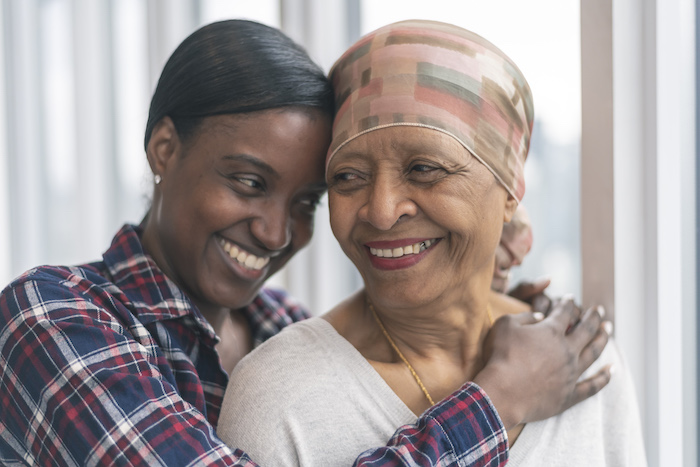Screening and Treatment May Vary for those at High Risk for Breast Cancer
October 2, 2024
 Genetic variations
Genetic variations
Two of the most well-known genetic mutations that can increase the risk of breast cancer are the breast cancer (BRCA) genes 1 and 2. Everyone has these genes, and under normal circumstances, BRCA1 and BRCA2 genes prevent cancer by producing proteins to help repair damaged DNA. But when a mutation occurs, these genes do not function properly, increasing the risk for several cancers, including breast cancer.
Assessing the risk – statistics
- About 13 percent of women in the general population will develop breast cancer sometime during their lives.
- Individuals with a strong family history of breast cancer are at higher risk.
- It is estimated that those with the inherited BRCA1 or BRCA2 mutations may account for about one out of every 10 cases.
- 55 to 72 percent of women who inherit a harmful BRCA1 variant and 45 to 69 percent of women who inherit a harmful BRCA2 variant will develop breast cancer by the time they are aged 70 or older.*
There is an increased prevalence for a BRCA1 or BRCA2 mutation in people who have a strong history of Ashkenazi Jewish (Eastern European), Norwegian, Dutch and Icelandic descent. African Americans also have a higher incidence of a harmful BRCA1 variant, compared to other ethnic groups in the United States.*
Find a doctor >
Screening and treatment
Saliva and blood tests are available to screen for the BRCA1 and BRCA2 mutations. If your screening tests are positive for either of these mutations, increased annual screenings may be recommended, including both a digital mammogram and an MRI scan at six-month intervals. Breast ultrasound screening may also be an option at the time of your mammogram, especially if you have dense breasts. For those under 40 with a positive result for BRCA1 or BRCA2, beginning breast cancer screening at a younger age than typical may be recommended.
Other preventive options include hormonal therapy medicines and protective surgery, known as prophylactic surgery, which entails proactively removing the healthy breasts. If you are concerned about your genetic risk for breast cancer, talk to your healthcare provider about screenings that may be right for you.
*National Cancer Institute
